How Much Gluten Is in Beer: Is It Harmful to Your Health?
How much gluten is in beer is a common question troubling health-conscious drinkers. The amount of gluten in your beer depends on its ingredients. Beer is generally made using wheat, barley, or rye, and all of these have gluten.
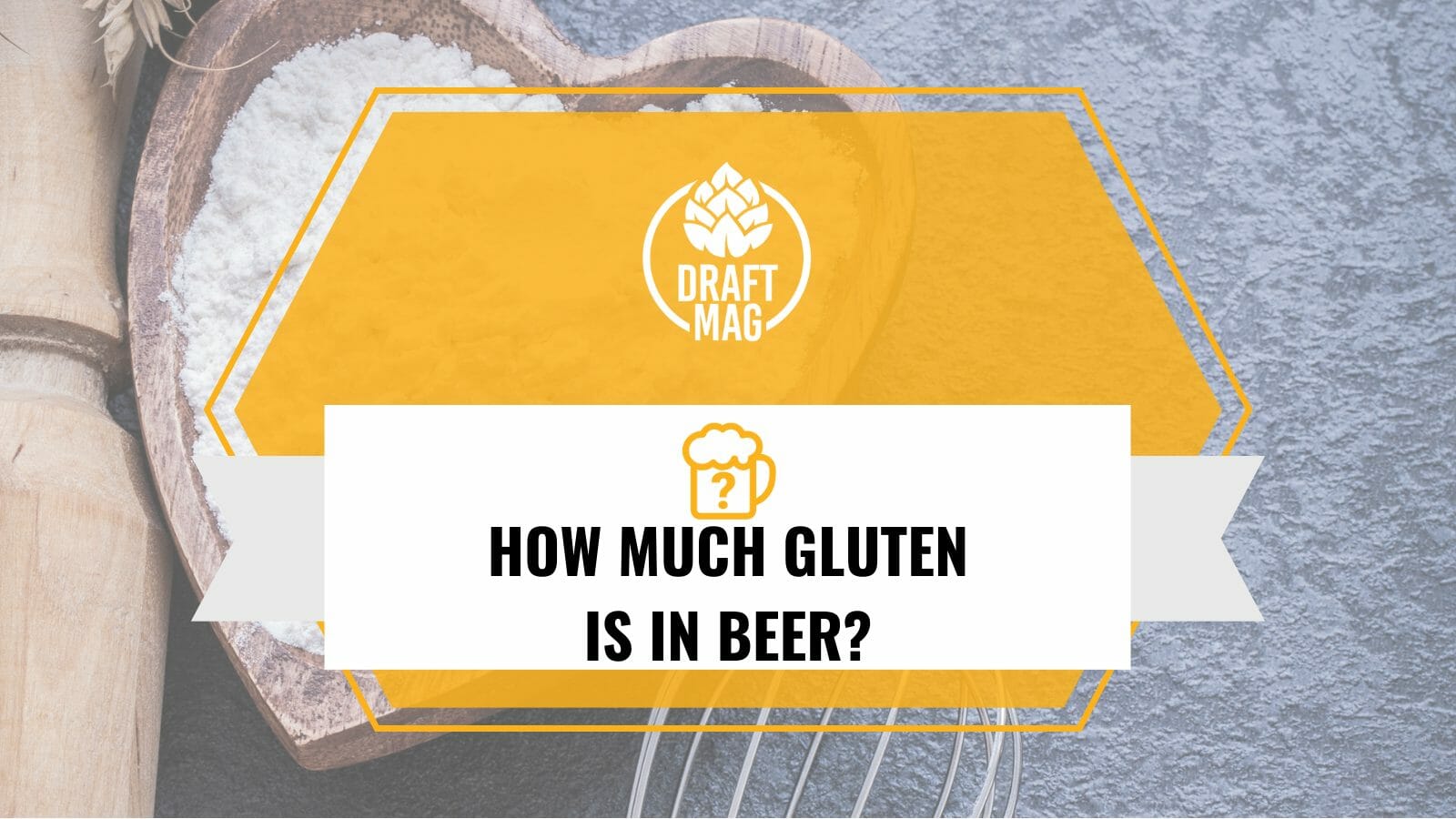
Scroll down this article to know the gluten levels in your choice of beer and explore some beer options for gluten intolerance.
How Much Gluten Is Included in Beer?
Generally, there is more than 20 ppm of gluten included in brewed beer. Beer is either made from barley or wheat, and both have very high gluten content. The gluten content of beer is measured in parts per million (ppm).
Out of all the beer types, lager is the one that has the least amount of gluten, so it seems an ideal type for those who are gluten-sensitive. Also, the gluten content varies from brand to brand.
Wheat has a higher amount of gluten than barley, so the gluten content varies from beer to beer, depending on the ingredients used. Here’s a list of common types of beer and their gluten content.
– Lager
Lager beers are lighter and have a little less gluten compared to other beer types. It can contain approximately 63 ppm of gluten per serving.

Take note that gluten content will vary depending on the brand of lager you drink.
– Ale
Ales are one of the most well-known beers in the market but have a high gluten quantity. Their average gluten level is 3,120 ppm, which is considerably higher than other beer types. Those who are gluten-intolerant should steer clear of this beer type.
– Stout
Stout beers have a medium gluten content of about 361 ppm. This is about the average range of regular beers, but gluten content will vary according to the brand.
– Wheat Beer
Wheat beer tends to have the highest gluten content, and it is somewhere around 25,920 ppm.

This happens because wheat beers use a huge quantity of wheat malts to make their brews. Like ales, those who are sensitive to gluten will be better off with another beer type instead.
– Beer That Has Less Than 20 PPM Gluten
As the craft beer industry rises and new varieties of beer options are taking over the market, there are now many beer options that have below 20 ppm gluten. Some of the options are:
- Hollywood Nights Blonde IPA
- Redbridge Lager
- Whole lotta Rosie Blonde Ale
- Bard’s Gold (Lager)
- Rendezvous Double IPA
- Disturbed Reflection Imperial IPA
- Pyro American Pale Ale
– Why Beer Contains Gluten
Before knowing why beer contains gluten, you must understand what exactly gluten is. Gluten is a group of proteins which can be found in grains such as barley, wheat and rye. Even in your daily meals, such as bread, pasta, cakes, or pastries, there’s a good amount of gluten.
Your beer contains gluten as it is made of grains such as barley. The sugar from the grains is fermented using yeast to produce alcohol. Brewing a standard beer is an intricate process. It involves the following ingredients:
- Water – Beer has almost 90 percent water.
- Grain – The sugar in beer comes from grains such as barley, rye, and wheat.
- Hops – Hops add a bitter taste to the beer to balance out its sweetness due to the malt.
- Yeast – The microorganism that is used for the fermentation of sugar.
Brewing may also involve the addition of other grains or flavoring agents to enhance the aroma and taste. Some of those additives may also contain gluten. However, a significant amount of gluten comes from grains.
– Gluten Intolerance and Beer
Gluten is a good source of protein for those who do not have gluten intolerance or celiac disease. It is low-calorie and rich in iron, selenium, and phosphorus and encourages the growth of good bacteria, which improves gut health.
However, people with celiac disease or other gluten disorders must avoid consuming gluten. When someone has a gluten allergy, they experience nausea, gas, or bloating after consuming gluten-containing food such as beer. Additional symptoms include joint discomfort, headaches, and skin rashes.
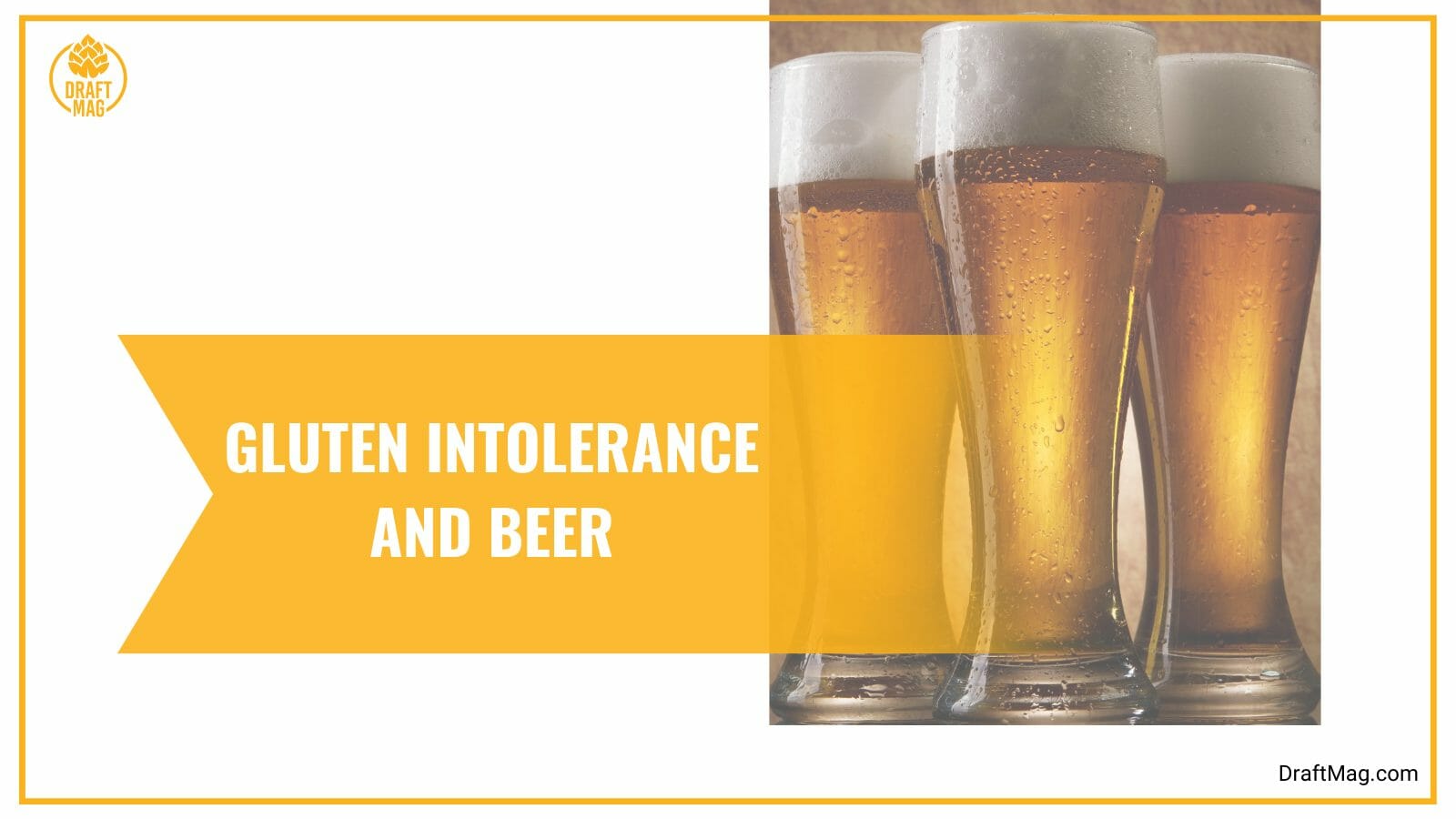
Another gluten disorder includes celiac disease. It’s a disease wherein, on gluten consumption, the body makes antibodies that harm the linings of the intestine. Since the small intestine linings are affected, it leads to the non-absorption of essential minerals such as iron or calcium. It can cause additional illnesses, including anemia, osteoporosis, diabetes, etc.
Duhring’s disease is another gluten-related disease. Gluten allergy can cause dermatitis herpetiformis, a condition in which the skin blisters and develops rashes and itching. However, even if you are gluten-intolerant, you can still experience a cold brew that is gluten-reduced or gluten-free.
– Bud Light for a Dedicated Gluten-free Diet
Though there are many Light Bud lovers out there, we are sorry to break it to you; this is not a gluten-free beer option. This beer is made with barley malts, and the gluten level is much above 20 ppm, so it is not good for a dedicated gluten-free diet plan.
– Gluten in Coors Light Beer
Coors light is not gluten-free. It is made from barley, which is a type of grain that contains gluten. It is actually wrong to assume that all light beers are gluten-free or low on gluten. If you have gluten sensitivity or intolerance, it is recommended to avoid Coors Light.
What Is the Difference Between Gluten-free Beer and Gluten-reduced Beer?
The difference between gluten free and gluten reduced beer is that gluten free beer is made using grains and do not contain gluten at all, while gluten reduced beer refers to brews that are brewed with Clarex, which is an enzyme that breaks the gluten molecules apart.
Many often confuse gluten-reduced beer for gluten-free beer. However, the two of them are not similar. Here’s a short guide to understanding the difference between the two.
– Gluten-free Beer
Beer made using grains that do not contain gluten can be classified as gluten-free beer. Such grains include rice, millet, quinoa, sorghum, buckwheat, and maize. Studies show that beer with less than 20 ppm of gluten is safe for people with gluten sensitivity. Thus, before packaging and labelling beer as gluten-free, it must be tested for gluten levels.
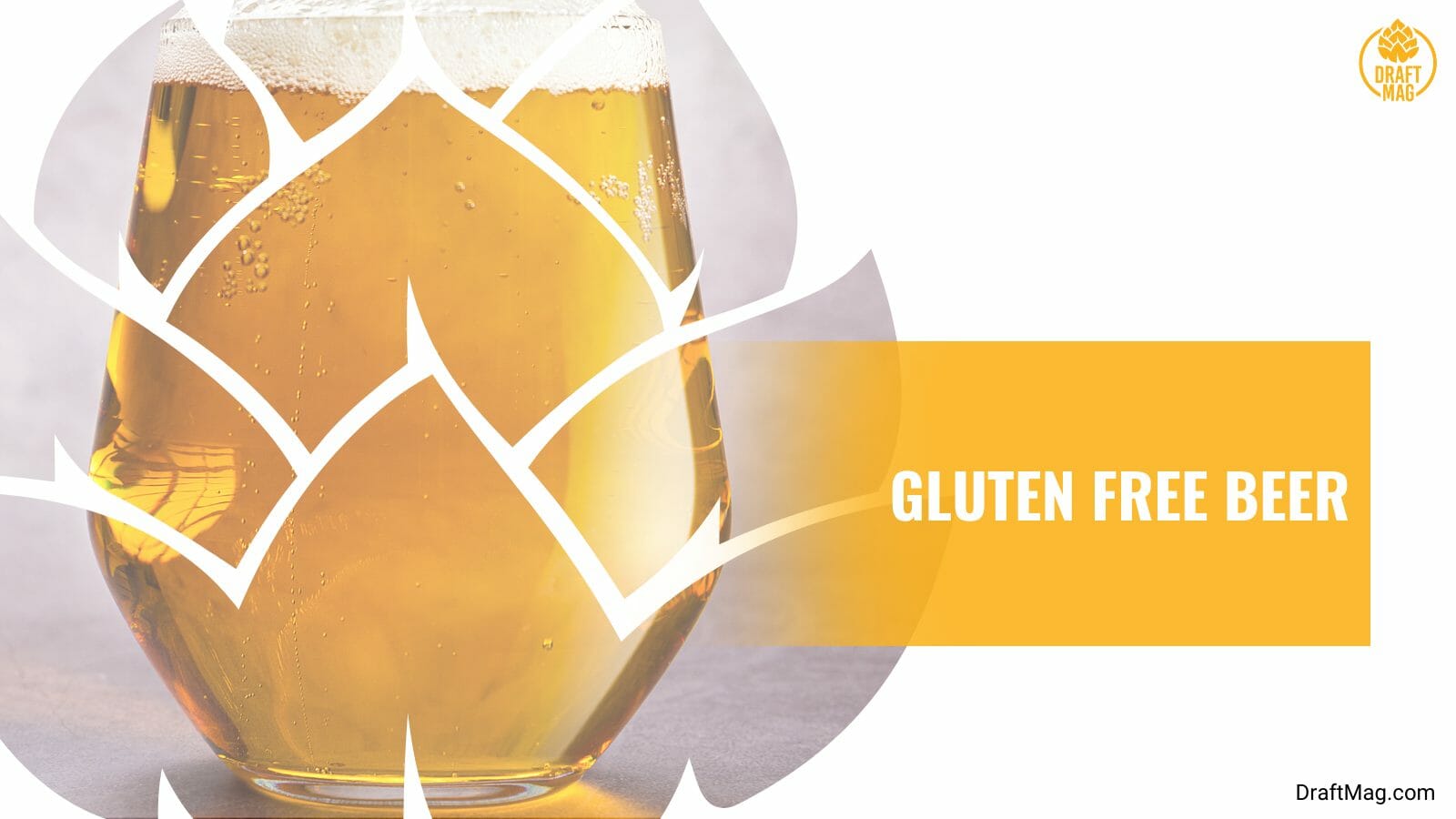
However, there may still be cross-contamination risks if gluten-free beer is brewed on the same lines as gluten-containing beers. Thus, gluten-free beer brewing may involve a more complex process.
– Gluten-reduced Beer
In the brewing process, wheat or barley is used, but the gluten of the grains is broken down using an enzyme called Clarex. The gluten molecule is broken down into very minute pieces so that the body cannot detect gluten. Beer that contains broken gluten can be referred to as gluten-reduced beer.
Some brewing industries address gluten-reduced beer as non-harmful for those who are gluten-intolerant. However, to label them as consumable for gluten-sensitive ones, the beer must pass the test of having less than 20 ppm of gluten.
What Are Some Beers for Gluten-intolerant Drinkers?
Some beers for gluten-intolerant drinkers include Holidaily BuckWit Belgian Witbier, Delicious IPA by Stone Brewing, Ultimate Light Golden Ale, and G Free Saison by Ipswich Ale Brewery. Holidaily BuckWit Belgian Witbier and G Free Saison are gluten-reduced, while the other two are gluten free.
Here are some of the best brewing options for gluten-sensitive people.
– Holidaily BuckWit Belgian Witbier (Gluten-free)
It is a gluten-free beer made using buckwheat. Also, the strong flavors in the beer from coriander and orange peel will surely refresh you. The beer is unfiltered and is highly safe for people with gluten-related diseases.

It has an ABV (alcohol by volume) of 4.8 percent.
– Delicious IPA by Stone Brewing (Gluten-Reduced)
If you have a severe gluten allergy, this beer may not be suitable for you because it is gluten reduced rather than gluten free. However, it may be the one if you are looking for a low gluten-level beer. With an ABV of 7.7 percent, it’s a great add-on to your meals.
– Ultimate Light Golden Ale by Omission Beer (Gluten-reduced)
This gluten-reduced ale is brewed using Cascade and Willamette hops. The golden ale has a pleasant and refreshing taste. It has an ABV of 4.6 percent and is good to go with burgers or grilled dishes.
– G Free Saison by Ipswich Ale Brewery (Gluten-free)
This gluten-free beer option is crafted using rice, sorghum, and hops. The brew has a fresh and tropical flavor imparted by the orange peel present in the beer. With an ABV of 4.5 percent, it’s a sweet and hoppy drink for the ones who have gluten sensitivity.
What Are the Best Gluten-free Breweries?
The best gluten free breweries include Burning Brothers Brewing, Ghostfish Brewing Company, Holidaily Brewing Co., Ground Breaker Brewing, Alt Brew, and Aurochs Brewing Co. As the world sees a significant rise in gluten averseness and Celiac disease cases, many craft breweries have experimented with and developed their own gluten-free options.
Here is a list of options that you must try.
– Burning Brothers Brewing, Minnesota
This is one brewery that produces some amazing 100 percent gluten-free beer varieties..
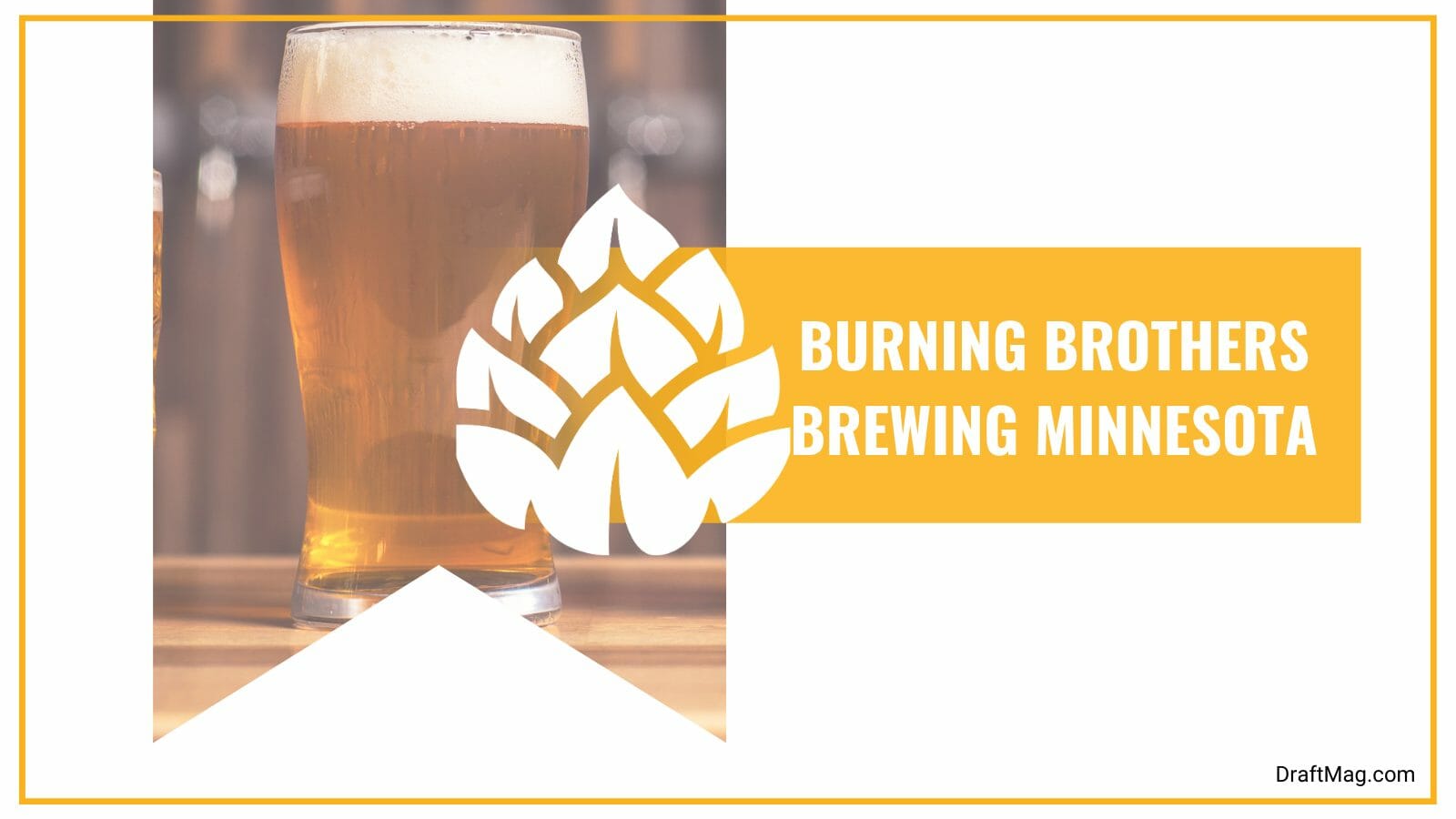
Some of their gluten-free varieties are Pyro American Pale Ale, Most Coast India Pale Ale, Midway American Lager, etc.
– Ghostfish Brewing Company, Washington
This is one brewery that serves multiple gluten-free options like pale ales and IPAs. Some of the must-try brews include Vanishing Point Pale Ale, Shrouded Summit Belgian White Ale, Meteor Shower Blonde Ale, etc.
– Holidaily Brewing Co., Colorado
This is a small brewery in Colorado and they mostly distribute their beer in local areas. They serve a 100 percent gluten-free list of beers. Some of the options you can try are Favorite Blonde Ale, Fat Randy’s IPA, Big Henry, Riva Stout, and many more.
– Ground Breaker Brewing, Oregon
The Ground Breaker Brewery is one of the most well-known gluten-free breweries in Oregon. They also offer a great selection of gluten-free food from their in-house food menu, which you can munch on along with your beer.
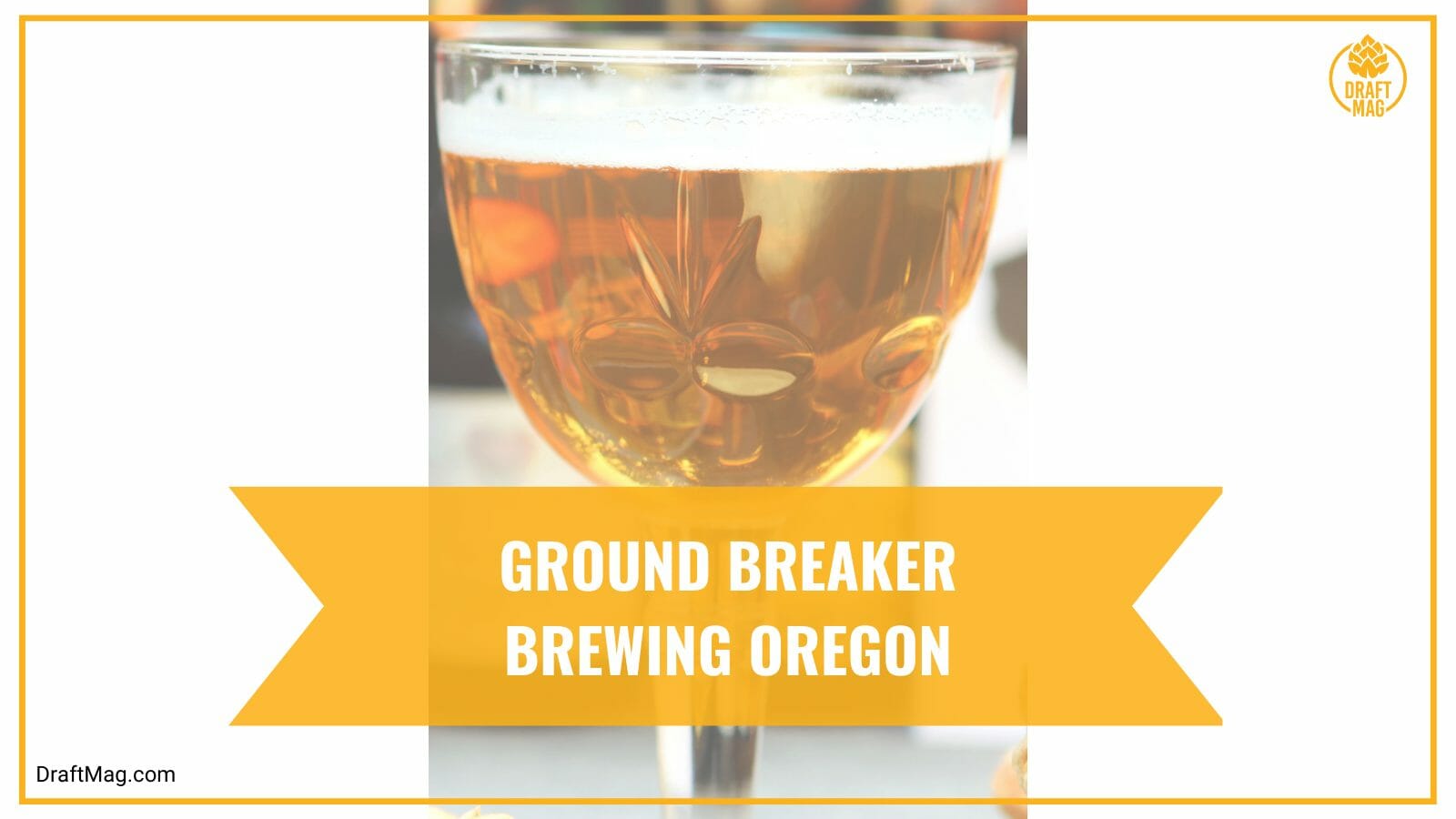
Some of the must-try brews of this facility are Inclusion – Dry Hopped Pale Ale, Dark Ale, IPA No. 5, Cascadian Dark Ale, and more.
– Alt Brew, Wisconsin
This is one of the oldest craft brewers in the market, which has made the beer scene more inclusive for gluten-intolerant folks. Some of the best beers they make are Kickback Kolsch, Copperhead Copper Ale, Farmhouse Ale, and Hollywood Nights Blonde IPA.
– Aurochs Brewing Co., Pennsylvania
This is one of the most highly rated gluten-free beer brewers in Pennsylvania. Some of the beers you should try at their facility are Aurochs Blonde Ale, Aurochs Light Lager, Aurochs Session IPA, Aurochs Pumpkin Ale (Seasonal), etc.
Conclusion
By now, you must have understood the gluten levels in different types of beers and some of the safer options for those who are gluten-sensitive.
- Wheat beer has the maximum gluten content, so if you are looking for less gluten consumption, it’s better to avoid wheat beer. You can choose lager over it.
- Even if you are gluten-intolerant, you can still safely consume gluten-reduced or gluten-free beers.
- Any beer with less than 20 ppm of gluten content is safe for people with gluten-related diseases.
Knowing how much gluten is in beer will help you safely enjoy your beverage. Many safe options are also available in the market for gluten intolerants. Thus, everyone can have a delightful beer-drinking experience.






